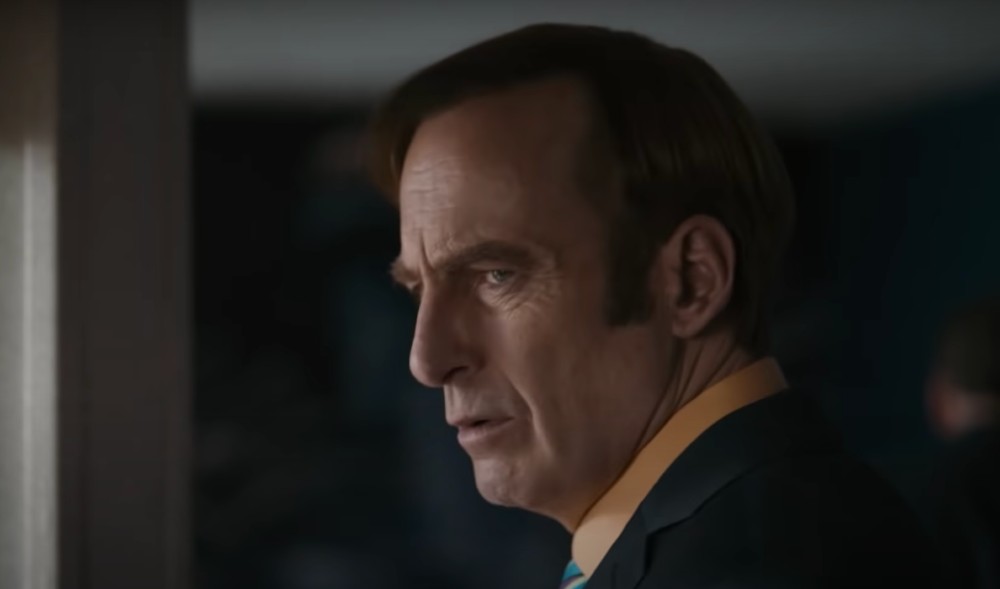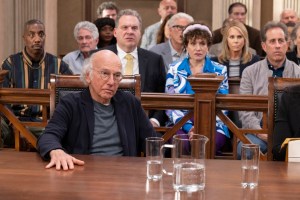Next week will see the final tranche of episodes of the sixth series of Better Call Saul swaggering onto Netflix. They follow a tense mid-season cliffhanger that saw the sudden death of one major character and the unexpected return of a former nemesis.
Expectations for the last installment are appropriately high, not least because of the much-heralded return of the two characters who defined the Breaking Bad universe from which the series was spun off: Aaron Paul’s hapless Jesse Pinkman and, most excitingly of all, Bryan Cranston’s Walter White.
Better Call Saul’s creators, Peter Gould and Vince Gilligan, are intelligent men. Gilligan was responsible for Breaking Bad, on which Gould was a writer, producer and director. And while Gilligan has largely taken a back seat on Better Call Saul, he has reportedly been more heavily involved in its final series — not a complete surprise, given the ramped-up emphasis on tension and violence. These intelligent men will know that the weight of expectation riding on the final installments of Better Call Saul is almost unbearable. Not only does it have to resolve itself in a satisfying and surprising way, but it has to make a definitive case for its existence as its own show, rather than simply an extension of its progenitor.
Breaking Bad, of course, is regularly named as the greatest TV series ever. It isn’t hard to see why. From a deceptively simple premise — a dying chemistry teacher turns to crime to provide for his family after his death, and finds he has a surprising affinity for it — it expanded into both a devastating character study and an edge-of-your-seat thriller. Several lines of dialogue are, of course, legendary: “I am the one who knocks” and “If you don’t know who I am, then maybe your best course is to tread lightly.”
But there was more to the show than iconic moments of machismo and chutzpah. In Cranston, it had a leading man who could play both comedy and tragedy, the latter of which eventually came to take on Shakespearean proportions. He was aided by a fine supporting cast that included many characters who have returned for Better Call Saul — Giancarlo Esposito’s immaculately ruthless drug kingpin Gus Fring and Jonathan Banks’s philosophical hitman Mike Ehrmantraut. Gilligan’s superb writing combined carefully paced episodes with jaw-dropping moments of violence that left the viewer aghast.
Better Call Saul certainly has these moments — the most recent episode’s ending, for one — but it is not designed to be the firecracker that its forebear was. Many of the early seasons revolved primarily around the relationship between Odenkirk’s Jimmy McGill, aka “Slippin’ Jimmy,” and his brother Chuck, played with magisterial charisma by Michael McKean. It may not have made for thrilling tension, but it certainly allowed two fine actors to explore new and unfamiliar territory, even as much-loved Breaking Bad characters slowly began to re-enter the frame. The show’s depiction of Kim Wexler built on the occasionally problematic female representation of Breaking Bad, and Rhea Seehorn’s multifaceted performance allowed viewers to believe that a strong, capable woman could not only fall in love with McGill/Goodman, but that she was just as capable of embracing the dark side as he was.
Yet those who say Better Call Saul is a greater show than Breaking Bad are wide of the mark. It certainly comes close in quality, but it often feels diffuse, due to its two parallel storylines, one around Saul and Kim and the other dealing with Fring and Mike. Still, in its final episodes, the return of Walter White will hopefully ramp up the dynamism and drama. The two series are complementary, rather than rivals. They immerse us in the warm bath of New Mexico narcotic-based criminality with all the fervor that Gilligan and Gould wish to achieve.


















